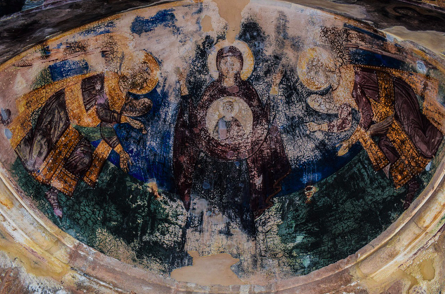Adnan Khan shares his research on Anna Comnena and her writings on the Byzantine Empire.

This blog investigates European, medieval women’s writings on the edge of the continent in what is now present day Istanbul, Turkey. With much of the historiography on women’s writings in Europe focussing on an Anglo-Burgundian axis in Western Europe, this blog seeks to highlight the research that can be done outside of this. This blog will focus on the case study of Anna Comnena, and how her works represent the opportunities for Byzantine women to interact with book usage and writing.

Anna Comnena, 1083-1153, was born in Constantinople, the capital of the Byzantine Empire. Anna was born in purple being the daughter of Emperor Alexios I and, given this privileged upbringing, was taught through a monastery studying history and philosophy and the work of scholars like Aristotle. Anna wrote histories on her father’s rule, documenting political events some of which she saw first-hand. These histories have been collated and translated into English in The Mexiad of the Princess Anna Comnena. These works sort to venerate her father above his successors with Anna’s analysis on the First Crusade one of the few Byzantine accounts still available.
Anna’s emergence as a historian was not common within twelfth century Byzantine society, despite her elite upbringing. A princess typically did not comment on the life of an Emperor and record this down for future generations to read. Anna was known throughout Constantinople for her intellectual capability and her knowledge of political and Christian practices which is highlighted by accounts provided by Anna’s contemporaries such as the Bishop of Ephesus, Georgios Tornikes. Furthermore, when Anna’s husband the historian Nikephoros Bryennios the Younger died in 1137, Anna would go onto finish his incomplete works in Greek documenting relations between the Byzantine Empire and the West.
Therefore, Anna is an example of a Byzantine women who given her elite birth was able to act beyond the expectations of her as a princess, completing some of the most important historical writings in the period. Furthermore, Anna was able to do this based upon her intellectual ability which reflects upon Byzantine society with similar examples available from other regions of Europe like Italy and Spain. Yet, the importance of Anna’s writings in documenting the life of the Emperor is an exceptional case which with further research may find parallels in other neighboring regions in the Middle East and beyond.
